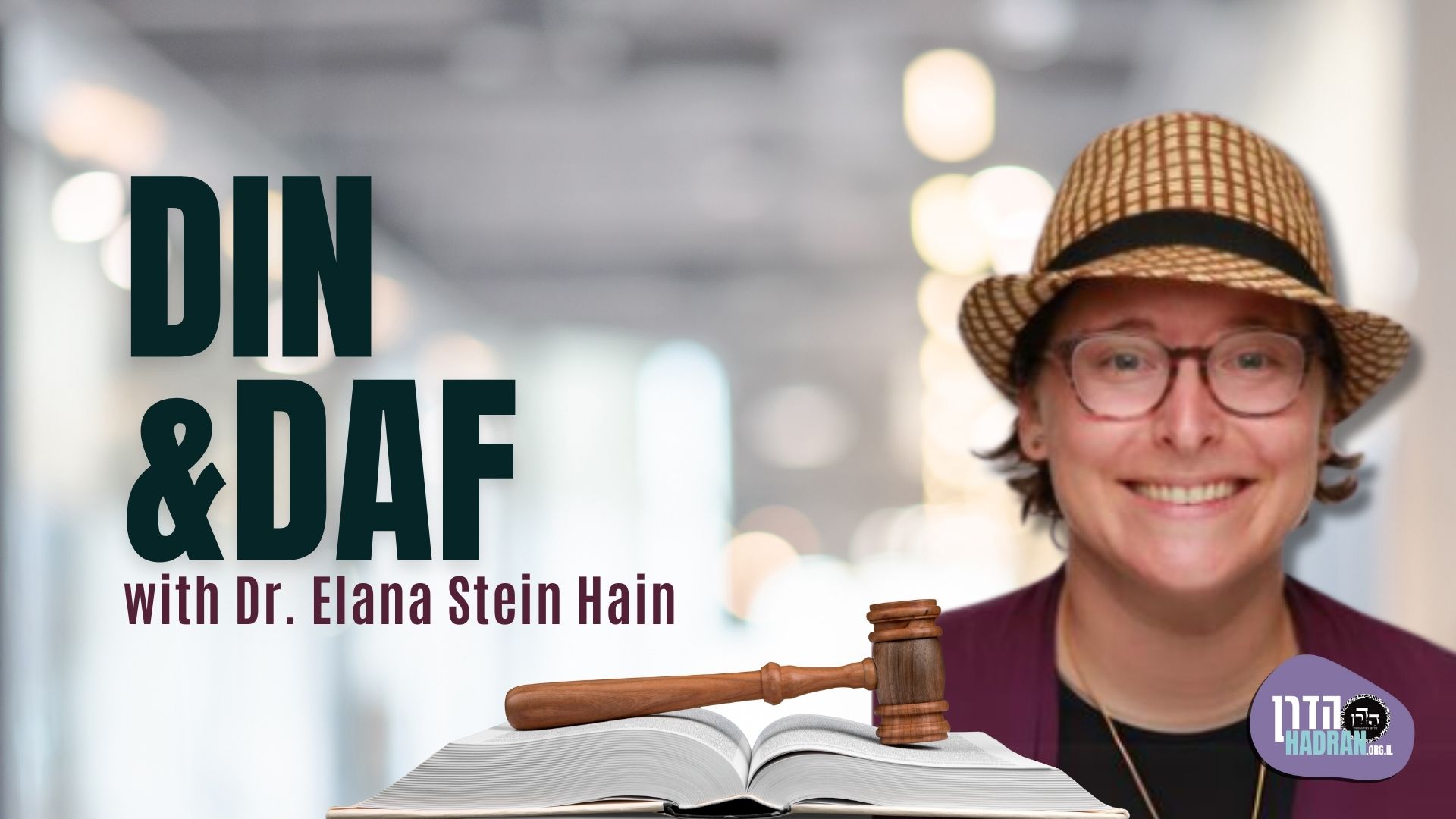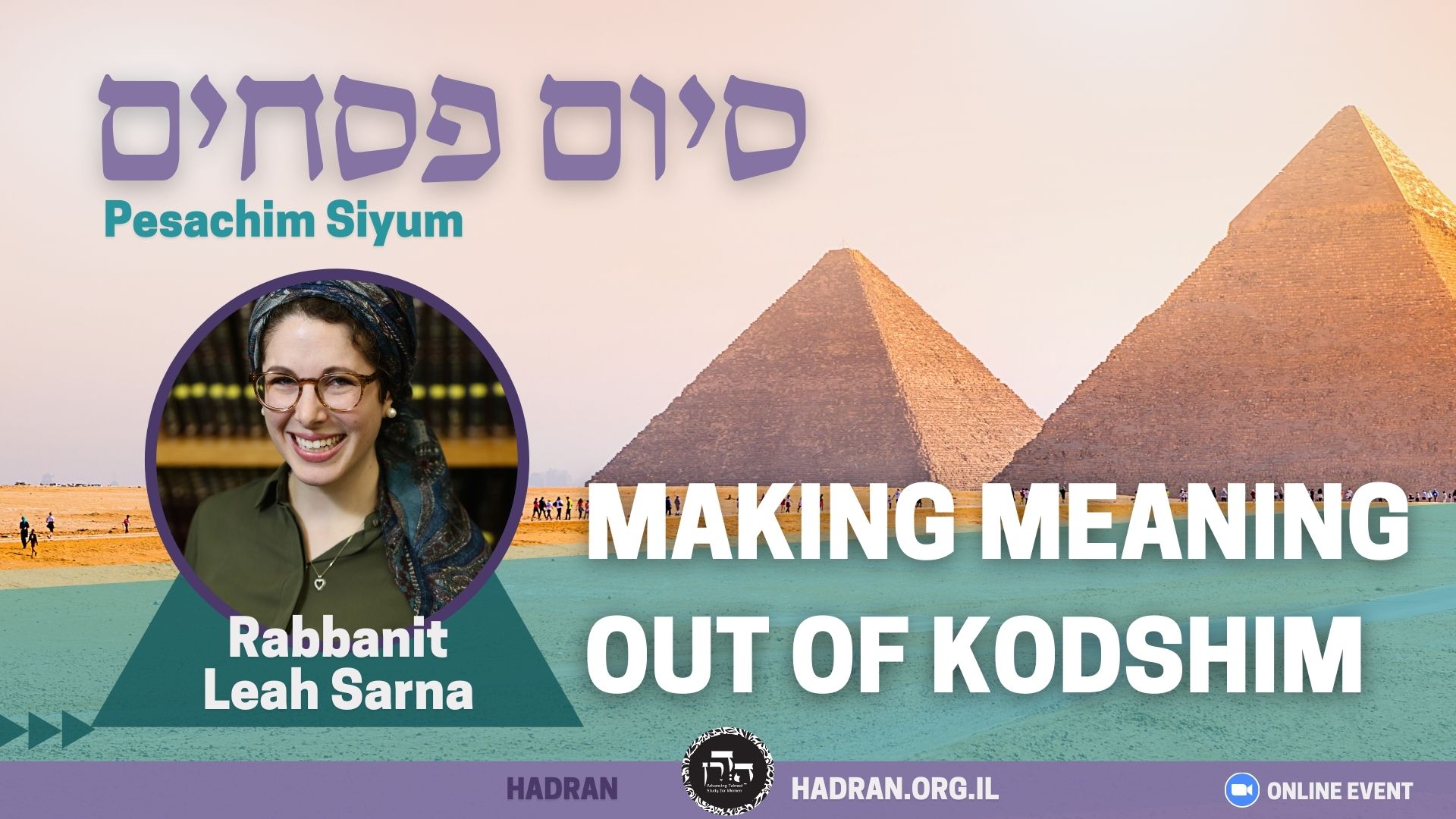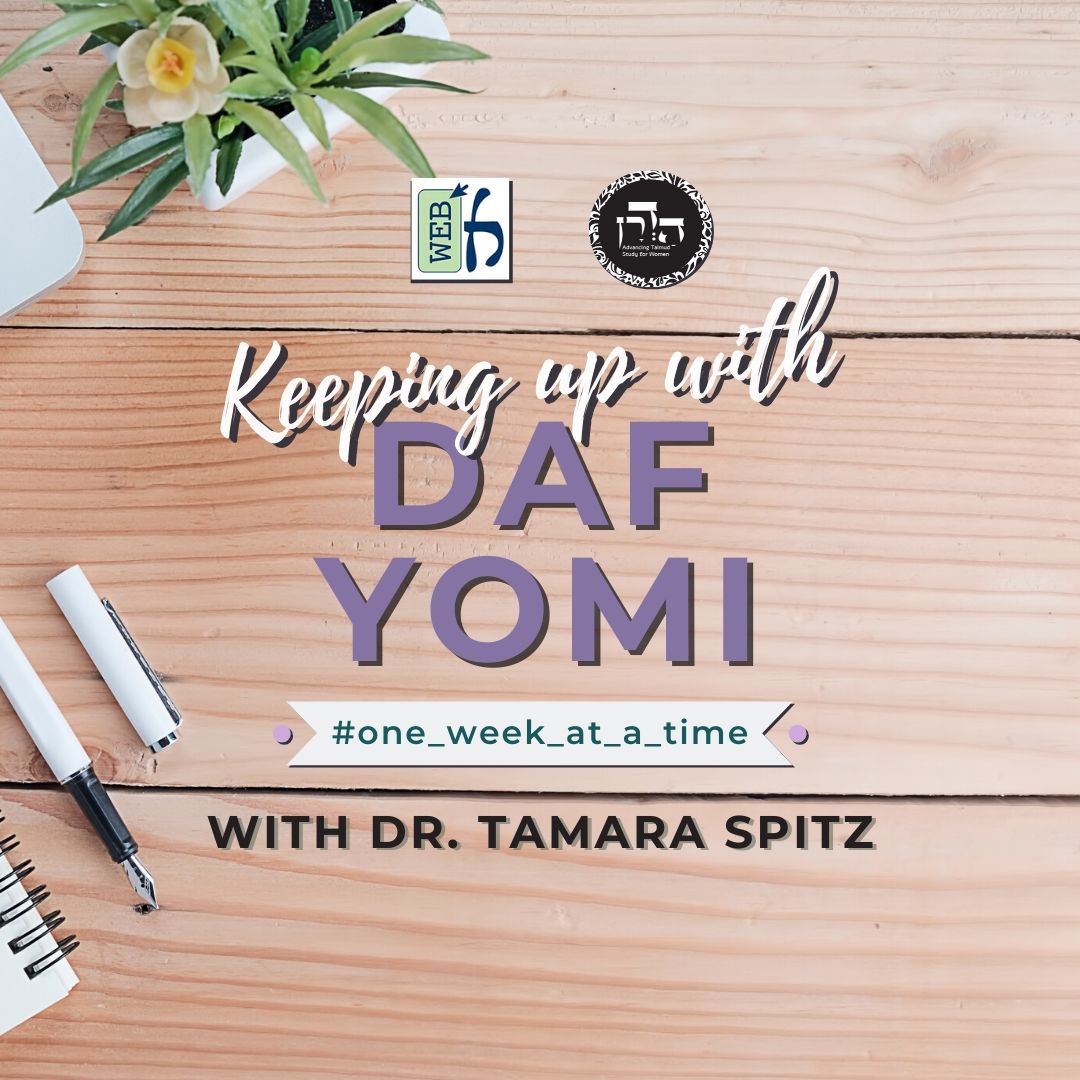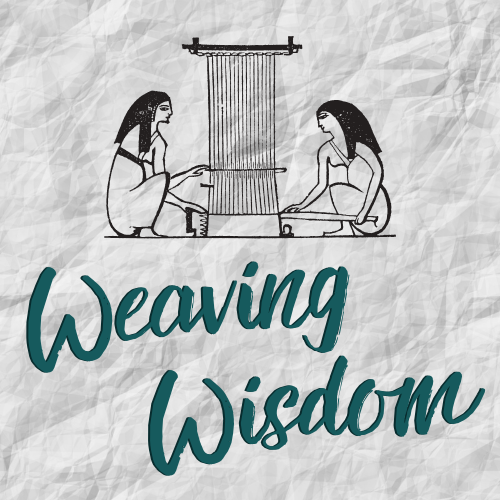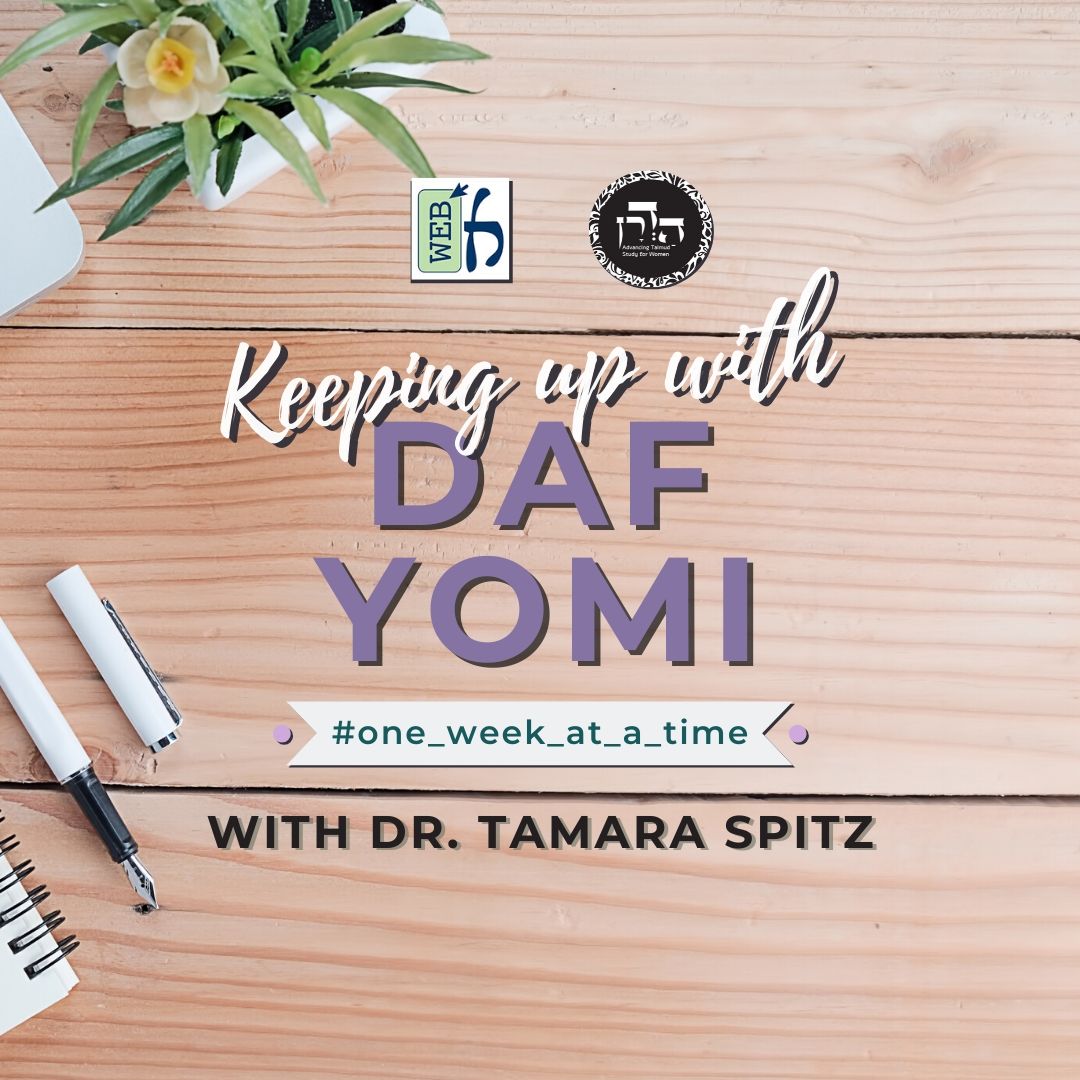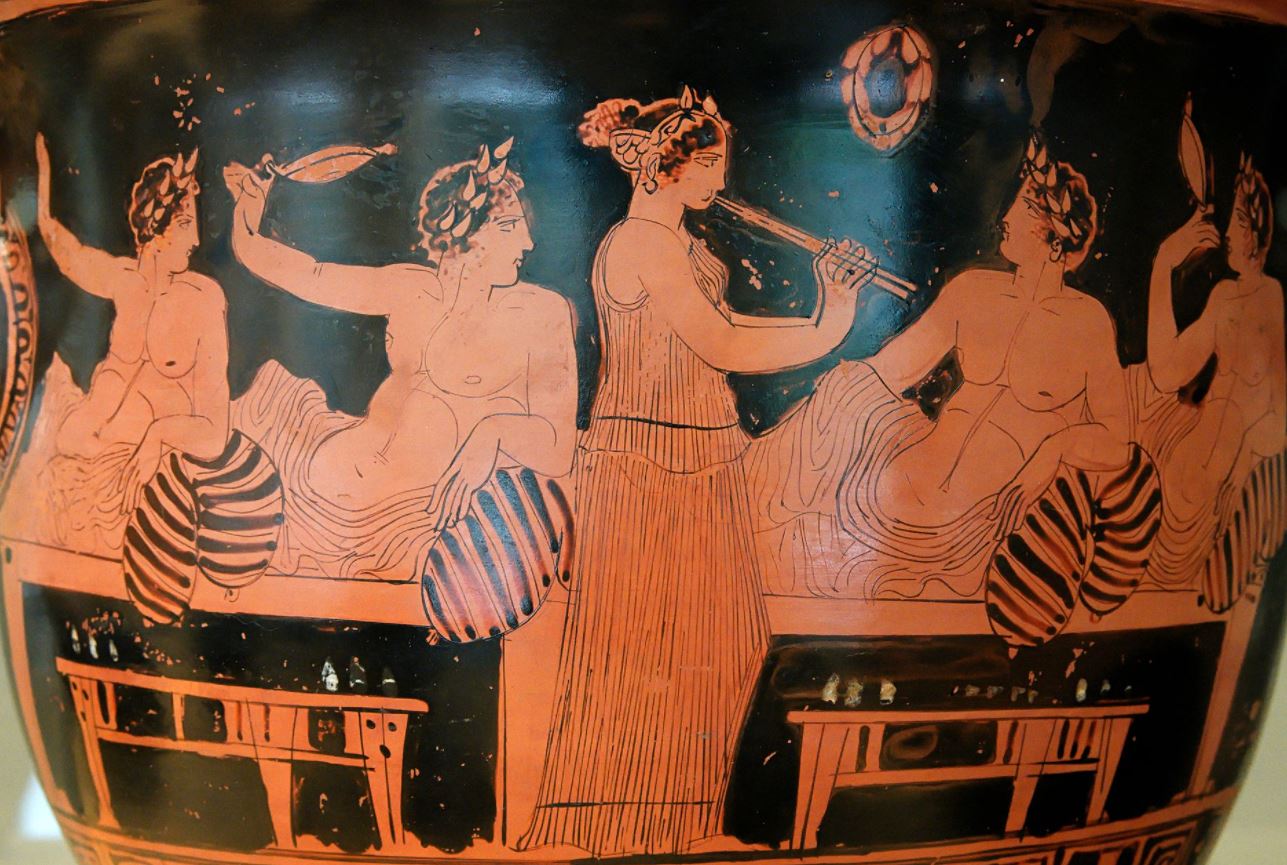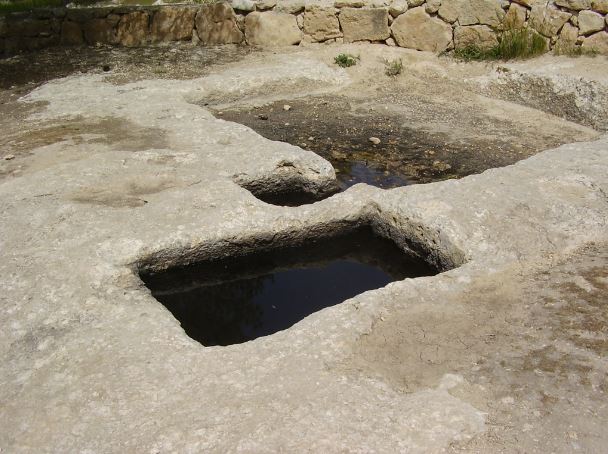Pesachim 34
בִּשְׁלִיקָתָא וּמְאִיסָתָא, הָכִי נָמֵי בִּשְׁלִיקָתָא וּמְאִיסָתָא. וְהֵיכָא אִיתְּמַר דְּרַב אָשֵׁי? אַהָא דְּאָמַר רַבִּי אָבִין בַּר רַב אַחָא אָמַר רַבִּי יִצְחָק: אַבָּא שָׁאוּל גַּבָּל שֶׁל בֵּית רַבִּי הָיָה, וְהָיוּ מְחַמִּין לוֹ חַמִּין בְּחִיטִּין שֶׁל תְּרוּמָה טְמֵאָה לָלוּשׁ בָּהֶן עִיסָּה בְּטׇהֳרָה. אַמַּאי? נֵיחוּשׁ דִּילְמָא אָתֵי בְּהוּ לִידֵי תַקָּלָה! אָמַר רַב אָשֵׁי: בִּשְׁלִיקָתָא וּמְאִיסָתָא.
This is referring to boiled and repulsive wheat, i.e., wheat that one boiled and then placed in a repulsive area, in which case he need not be concerned that this wheat will accidentally be eaten; so too here, it is referring to boiled and repulsive wheat. The Gemara asks: Where was Rav Ashi’s explanation stated? It was stated with regard to this: As Rabbi Avin bar Rav Aḥa said that Rabbi Yitzḥak said: Abba Shaul was the dough kneader of Rabbi Yehuda HaNasi’s house, and they would heat water for him, to make dough, with wheat of ritually impure teruma, which was purchased from priests at a low price, in order to knead dough in ritual purity. The Gemara asks: Why did they do this? Let us be concerned lest they encounter a stumbling block by accidentally eating this wheat. With regard to this Rav Ashi said that it was only done when the wheat was boiled and repulsive and could only be used for lighting a fire.
אַבָּיֵי בַּר אָבִין וְרַב חֲנַנְיָא בַּר אָבִין תָּנוּ תְּרוּמוֹת בֵּי רַבָּה. פְּגַע בְּהוּ רָבָא בַּר מַתְנָה, אֲמַר לְהוּ: מַאי אָמְרִיתוּ בִּתְרוּמוֹת דְּבֵי מָר? אֲמַרוּ לֵיהּ: וּמַאי קַשְׁיָא לָךְ? אֲמַר לְהוּ, תְּנַן: שְׁתִילֵי תְרוּמוֹת שֶׁנִּטְמְאוּ וּשְׁתָלָן — טְהוֹרִים מִלְּטַמֵּא, וַאֲסוּרִין מִלֶּאֱכוֹל (בִּתְרוּמָה). וְכִי מֵאַחַר דִּטְהוֹרִין מִלְּטַמֵּא, אַמַּאי אֲסוּרִין מִלֶּאֱכוֹל?
After mentioning ways in which impure teruma was used, the Gemara mentions other halakhot pertaining to this issue. Abaye bar Avin and Rav Ḥananya bar Avin taught the tractate of Terumot in the school of Rabba. Rava bar Mattana met them and said to them: What novel idea can you say has been taught with regard to Terumot in the school of our Master, Rabba? They said to him: What is difficult for you? There must be some issue troubling you that has caused you to ask this question. He said to them: The following statement that we learned in the mishna in Terumot is unclear: Saplings of teruma that became ritually impure and were planted are pure such that they do not impart ritual impurity once they have been planted, but they are prohibited to be eaten as teruma. The question arises: If they do not impart ritual impurity, why is it prohibited to eat them? If their impurity has been eliminated then it should be permitted to eat them, like other ritually pure teruma.
אֲמַרוּ לֵיהּ, הָכִי אָמַר רַבָּה: מַאי אֲסוּרִין — אֲסוּרִין לְזָרִים. וּמַאי קָא מַשְׁמַע לַן: גִּידּוּלֵי תְרוּמָה — תְּרוּמָה? תְּנֵינָא: גִּידּוּלֵי תְרוּמָה — תְּרוּמָה!
Abaye bar Avin and Rav Ḥananya bar Avin said to Rava bar Mattana: This is what Rabba said in explaining this mishna: What does it mean that they are prohibited to be eaten? It means that they are prohibited to be eaten by non-priests, but a priest may eat them. Once these saplings are planted, they lose their ritual impurity but retain their status as teruma. Rava bar Mattana challenged this answer: If this is the case, what is the mishna teaching us with this statement? Is it teaching us that growths of teruma are considered teruma? It is unnecessary to teach this principle, as we already learned: Growths of teruma, i.e., produce that grows from teruma that was planted in the ground, are considered teruma. Why, then, is it necessary to teach this principle again?
וְכִי תֵּימָא גִּידּוּלֵי גִידּוּלִין, וּמַאי קָא מַשְׁמַע לַן — בְּדָבָר שֶׁאֵין זַרְעוֹ כָּלֶה. הָא נָמֵי תְּנֵינָא: הַטֶּבֶל — גִּידּוּלָיו מוּתָּרִין, בְּדָבָר שֶׁזַּרְעוֹ כָּלֶה. אֲבָל בְּדָבָר שֶׁאֵין זַרְעוֹ כָּלֶה — אֲפִילּוּ גִּידּוּלֵי גִידּוּלִין אֲסוּרִין בַּאֲכִילָה. אִישְׁתִּיקוּ.
And if you say as follows: This case is referring to the growths of growths of teruma, i.e., plants that grew from the original growths of teruma, and what is it teaching us? It is teaching that an item whose seed does not disintegrate when planted in the ground maintains its teruma status. While most seeds will disintegrate, other plants, such as onions and garlic, merely continue growing when planted. In that case, this mishna would be informing us that even the growths of growths of such plants retain their teruma status. However, we already learned that as well. As the mishna states: With regard to untithed produce [tevel], its growths, the produce that grows from it, are permitted in the case of items whose seed disintegrates; however, in the case of items where the seed does not disintegrate, it is prohibited to eat even the growths of growths unless they are tithed. There would be no need for the mishna to teach us this halakha a second time. They were silent and did not have an answer to this question.
אֲמַרוּ לֵיהּ: מִידֵּי שְׁמִיעַ לָךְ בְּהָא? אֲמַר לְהוּ, הָכִי אָמַר רַב שֵׁשֶׁת: מַאי אֲסוּרִין — אֲסוּרִין לְכֹהֲנִים, הוֹאִיל וְאִיפְּסִילוּ לְהוּ בְּהֶיסַּח הַדַּעַת.
They said to Rava bar Mattana: Have you heard something in this regard? He said to them: This is what Rav Sheshet said: What is the meaning of the word prohibited in this context? It means that it is prohibited for priests, since it has been disqualified for them due to the diversion of attention. Teruma and other consecrated property must be guarded, and when one fails to do so, it is treated as though it were impure. Therefore, these teruma saplings are treated as though they have become impure once the priest diverts attention from them, and they remain prohibited to him even after another generation grows from them.
הָנִיחָא לְמַאן דְּאָמַר הֶיסַּח הַדַּעַת פְּסוּל הַגּוּף הָוֵי — שַׁפִּיר, אֶלָּא לְמַאן דְּאָמַר הֶיסַּח הַדַּעַת פְּסוּל טוּמְאָה הָוֵי — מַאי אִיכָּא לְמֵימַר?!
The Gemara asks: Granted, according to the one who says that a diversion of attention constitutes an inherent disqualification, it works out well. According to this opinion, a diversion of attention does not disqualify teruma due to a concern that it became impure. Instead, there is an independent rabbinic decree rendering teruma that has not been watched impure even when this teruma could not possibly have become impure. According to this opinion, one can understand why this growth may not be eaten by a priest. But according to the one who says that a diversion of attention is a disqualification due to a concern about ritual impurity, what is there to say? It is stated in the mishna that by planting these saplings they become pure, even if they were certainly ritually impure prior to being planted. If this is the case with regard to teruma that is certainly impure, all the more so should it apply to a case where there is only a chance that the teruma is ritually impure.
דְּאִתְּמַר: הֶיסַּח הַדַּעַת, רַבִּי יוֹחָנָן אָמַר: פְּסוּל טוּמְאָה הָוֵי, וְרַבִּי שִׁמְעוֹן בֶּן לָקִישׁ אָמַר: פְּסוּל הַגּוּף הָוֵי.
Apropos the discussion of diversion of attention, the Gemara cites a dispute between amora’im with regard to this issue, as it was stated: What is the nature of the disqualification of diversion of attention? Rabbi Yoḥanan said: It is a disqualification due to a concern about ritual impurity that may have been contracted while one’s attention was diverted. And Rabbi Shimon ben Lakish said: It is an inherent disqualification.
רַבִּי יוֹחָנָן אָמַר פְּסוּל טוּמְאָה הָוֵי: שֶׁאִם יָבֹא אֵלִיָּהוּ וִיטַהֲרֶנָּה — שׁוֹמְעִין לוֹ. רַבִּי שִׁמְעוֹן בֶּן לָקִישׁ אוֹמֵר פְּסוּל הַגּוּף הָוֵי: שֶׁאִם יָבֹא אֵלִיָּהוּ וִיטַהֲרֶנָּה — אֵין שׁוֹמְעִין לוֹ.
The Gemara discusses the ramifications of this dispute: According to Rabbi Yoḥanan, who said it is a disqualification due to a concern about ritual impurity, if Elijah comes and renders it ritually pure then we will listen to him, because it was treated as impure only due to a doubt with regard to its actual status. However, according to Rabbi Shimon ben Lakish, who said that it is an inherent disqualification, even if Elijah comes and renders it pure we will not listen to him. The reason for this is that Rabbi Shimon ben Lakish believes that this decree is unrelated to the question of whether the object actually became impure.
אֵיתִיבֵיהּ רַבִּי יוֹחָנָן לְרַבִּי שִׁמְעוֹן בֶּן לָקִישׁ, רַבִּי יִשְׁמָעֵאל בְּנוֹ שֶׁל רַבִּי יוֹחָנָן בֶּן בְּרוֹקָא אוֹמֵר: לוּל קָטָן הָיָה בֵּין כֶּבֶשׁ לַמִּזְבֵּחַ בְּמַעֲרָבוֹ שֶׁל כֶּבֶשׁ, שֶׁשָּׁם הָיוּ זוֹרְקִין פְּסוּלֵי חַטַּאת הָעוֹף, וּתְעוּבַּר צוּרָתָן, וְיוֹצְאִין לְבֵית הַשְּׂרֵיפָה. אִי אָמְרַתְּ בִּשְׁלָמָא פְּסוּל טוּמְאָה הָוֵי, מִשּׁוּם הָכִי בָּעֵי עִיבּוּר צוּרָה, שֶׁמָּא יָבֹא אֵלִיָּהוּ וִיטַהֲרֶנָּה. אֶלָּא אִי אָמְרַתְּ פְּסוּל הַגּוּף, לְמָה לִי עִיבּוּר צוּרָה? וְהָתְנַן, זֶה הַכְּלָל:
Rabbi Yoḥanan raised an objection to the opinion of Rabbi Shimon ben Lakish based on what is taught in the Tosefta: Rabbi Yishmael, son of Rabbi Yoḥanan ben Beroka, says: There was a small gap between the ramp and the altar on the western side of the ramp, where they would throw disqualified birds that had been designated as sin-offerings. If birds became disqualified for any reason, such as a diversion of attention, they were left there until their form decayed, i.e., until the next morning, at which point they would be definitively disqualified due to remaining in the Temple overnight and could be taken out to the place designated for burning. Granted, if you say that a diversion of attention is a disqualification due to a concern for ritual impurity, for this reason it requires decay of form to ensure that the bird is certainly disqualified. Currently the bird is disqualified only due to uncertainty, and Elijah may come and render it ritually pure. However, if you say that it is an inherent disqualification, then why do I need to leave it until it has decay of form? It should be definitively disqualified once there has been a diversion of attention. But didn’t we learn in the mishna that this is the principle:
כׇּל שֶׁפְּסוּלוֹ בְּגוּפוֹ — יִשָּׂרֵף מִיָּד. בַּדָּם וּבַבְּעָלִים — תְּעוּבַּר צוּרָתָן וְיוֹצְאִין לְבֵית הַשְּׂרֵיפָה. אֲמַר לֵיהּ: הַאי תַּנָּא, תַּנָּא דְּבֵי רַבָּה בַּר אֲבוּהּ הוּא, דְּאָמַר: אֲפִילּוּ פִּיגּוּל טָעוּן עִיבּוּר צוּרָה.
Any offering that has a disqualification in the body of the animal, i.e., it has a definite disqualification with regard to the meat itself, should be burned immediately. If it has a disqualification in the blood of the animal, e.g., if the blood was spilled, or a disqualification of its owner, e.g., if the owner became impure, then it should be left until its form is decayed and taken out to the place designated for burning. Rabbi Shimon ben Lakish said to him: This tanna, Rabbi Yishmael, son of Rabbi Yoḥanan ben Beroka, is of the same opinion as the tanna who taught in the school of Rabba bar Avuh, who said: Even piggul, an offering that was invalidated due to inappropriate intent while being offered, requires decay of form. Even with regard to an inherent disqualification in the meat of the offering, where the Torah says explicitly that the offering should be burned, as is the case with regard to piggul, the animal should be set aside until the next day, when its form has decayed.
אֵיתִיבֵיהּ: נִטְמָא אוֹ שֶׁנִּפְסַל הַבָּשָׂר, אוֹ שֶׁיָּצָא חוּץ לַקְּלָעִים, רַבִּי אֱלִיעֶזֶר אוֹמֵר: יִזְרוֹק, רַבִּי יְהוֹשֻׁעַ אוֹמֵר: לֹא יִזְרוֹק. וּמוֹדֶה רַבִּי יְהוֹשֻׁעַ שֶׁאִם זָרַק — הוּרְצָה.
Rabbi Yoḥanan raised a further objection to the opinion of Rabbi Shimon ben Lakish based on another baraita, where it is taught: If the meat became impure or disqualified, or if it was taken out of the walls that delineate its permitted area, Rabbi Eliezer says: He sprinkles the blood of these offerings nonetheless, as in his opinion the blood may be sprinkled regardless of the status of the meat of the offering. Rabbi Yehoshua says: He does not sprinkle the blood unless the meat is fit to be brought as an offering. And Rabbi Yehoshua concedes that if the blood was sprinkled, the offering is accepted.
מַאי נִפְסַל — לָאו בְּהֶיסַּח הַדַּעַת? אִי אָמְרַתְּ בִּשְׁלָמָא פְּסוּלֵי טוּמְאָה הָוֵי, הַיְינוּ דְּמַשְׁכַּחַתְּ לַהּ דִּמְרַצֵּי צִיץ. אֶלָּא אִי אָמְרַתְּ פְּסוּל הַגּוּף הָוֵי, אַמַּאי הוּרְצָה (צִיץ)?
The Gemara clarifies: To what type of disqualification is the baraita referring? Is it not disqualification on account of a diversion of attention? It cannot be a case where it was disqualified due to impurity or being taken outside of the walls, since these are mentioned explicitly. Granted, if you say that a diversion of attention is a disqualification based on a concern about ritual impurity, this is how you can find a case that the offering is accepted because the frontplate atones for cases where there is a disqualification related to ritual impurity. But if you say that it is an inherent disqualification, why is the offering accepted according to Rabbi Yehoshua, given that it is a disqualified offering?
מַאי נִפְסַל, נִפְסַל בִּטְבוּל יוֹם. אִי הָכִי, הַיְינוּ טָמֵא! תְּרֵי גַּוְונֵי טָמֵא.
Rabbi Shimon ben Lakish rejects this interpretation of the baraita: No, this is not a case where the offering was disqualified due to a diversion of attention. In what way was the offering disqualified? It was disqualified due to contact with one who immersed himself during the day. One who immersed himself during the day invalidates items due to ritual impurity. Although these items themselves are invalidated, they cannot in turn render other items ritually impure. The Gemara asks: If that is so, this is the same as the disqualification of ritual impurity. What, then, is the difference between this disqualification and that of ritual impurity previously mentioned by the baraita? The Gemara answers that two types of ritual impurity are mentioned here: One type of impurity can also impart impurity to other objects, and a second type can invalidate another object but will not impart impurity.
כִּי סְלֵיק רָבִין, אַמְרַהּ לִשְׁמַעְתֵּיהּ קַמֵּיהּ דְּרַבִּי יִרְמְיָה, וַאֲמַר: בַּבְלָאֵי טַפְשָׁאֵי, מִשּׁוּם דְּיָתְבִי בְּאַרְעָא דַחֲשׁוֹכָא אָמְרִיתוּן שְׁמַעְתָּתָא דִּמְחַשְּׁכוּ. לָא שְׁמִיעַ לְכוּ הָא דְּרַבִּי שִׁמְעוֹן בֶּן לָקִישׁ מִשְּׁמֵיהּ דְּרַבִּי אוֹשַׁעְיָא:
When Ravin ascended to Eretz Yisrael, he stated this halakha of Rav Sheshet before Rabbi Yirmeya. And Rabbi Yirmeya said: Foolish Babylonians! Because you dwell in a dark land, you state halakhot that are dim. Have you not heard this statement of Rabbi Shimon ben Lakish in the name of Rabbi Oshaya?
מֵי הַחַג שֶׁנִּטְמְאוּ, הִשִּׁיקָן וְאַחַר כָּךְ הִקְדִּישָׁן — טְהוֹרִין, הִקְדִּישָׁן וְאַחַר כָּךְ הִשִּׁיקָן — טְמֵאִים.
Rabbi Shimon ben Lakish said in the name of Rabbi Oshaya: With regard to the water used for the water libation during the festival of Sukkot which was drawn over the course of the day in order to be poured the next day and consequently became impure, the following distinction applies: If it was brought into contact with a ritual bath of pure water and was then consecrated, it is ritually pure. However, if it was consecrated and was then brought into contact with the ritual bath, it is ritually impure.
מִכְּדֵי זְרִיעָה נִינְהוּ, מָה לִי הִשִּׁיקָן וְאַחַר כָּךְ הִקְדִּישָׁן, מָה לִי הִקְדִּישָׁן וְאַחַר כָּךְ הִשִּׁיקָן? אַלְמָא: אֵין זְרִיעָה לְהֶקְדֵּשׁ. הָכָא נָמֵי, אֵין זְרִיעָה לִתְרוּמָה.
The question arises: Since this type of purification is similar to planting, as when the impure water came in contact with the water of the ritual bath, it is considered as though the water was planted in the ground and thereby purified, what does it matter if it was brought into contact and then consecrated or consecrated and then brought into contact? Apparently planting is not effective with regard to consecrated items, i.e., such items are not purified through this process. Therefore, here too, planting is not effective with regard to teruma. Despite the fact that planting is generally effective in removing the impure status of the water, the Sages imposed higher standards with regard to consecrated items. Similarly, the Sages imposed higher standards for removing the teruma status of the plants. One can explain that the produce grown from teruma mentioned in the baraita remains prohibited for non-priests because it is still considered teruma.
יָתֵיב רַב דִּימִי וְקָאָמַר לַהּ לְהָא שְׁמַעְתָּא. אֲמַר לֵיהּ אַבָּיֵי: הִקְדִּישָׁן בִּכְלִי קָאָמַר, אֲבָל בַּפֶּה לָא עֲבוּד רַבָּנַן מַעֲלָה. אוֹ דִילְמָא בַּפֶּה נָמֵי עֲבוּד רַבָּנַן מַעֲלָה?
Rav Dimi sat and said this halakha that was stated by Rav Oshaya with regard to principle of bringing liquid into contact with a ritual bath. Abaye said to him: Did Rav Oshaya state his ruling that bringing a liquid into contact with a ritual bath is not effective for consecrated items with regard to a case where he consecrated the water by placing it in a sacred vessel, but if he consecrated it through speech then the Sages did not impose a higher standard, in which case the water can be purified by being brought into contact with a ritual bath? Or perhaps the Sages imposed a higher standard in a case where one consecrates it through speech as well?
אֲמַר לֵיהּ: זוֹ לֹא שָׁמַעְתִּי, כַּיּוֹצֵא בָּהּ שָׁמַעְתִּי. דְּאָמַר רַבִּי אֲבָהוּ אָמַר רַבִּי יוֹחָנָן: עֲנָבִים שֶׁנִּטְמְאוּ, דְּרָכָן וְאַחַר כָּךְ הִקְדִּישָׁן — טְהוֹרִים. הִקְדִּישָׁן וְאַחַר כָּךְ דְּרָכָן — טְמֵאִין. וְהָא עֲנָבִים דִּקְדוּשַּׁת פֶּה נִינְהוּ, וַאֲפִילּוּ הָכִי עֲבוּד רַבָּנַן מַעֲלָה.
Rav Dimi said to him: I did not hear the halakha with regard to this case; however, I heard the halakha with regard to a similar case. As Rabbi Abbahu said that Rabbi Yoḥanan said: With regard to grapes that became ritually impure, if one trod on them and afterward consecrated them, they are pure. According to this opinion, the wine inside the grape does not become impure from the grape itself. However, if he consecrated the grapes and afterward pressed them, they are impure, because the halakha is especially stringent with regard consecrated items. And yet with regard to grapes which are only consecrated through speech, as the wine/grapes offered on the altar are not brought in a sacred vessel, even so, the Sages imposed a higher standard such that these grapes become impure after they have been consecrated.
אָמַר רַב יוֹסֵף: עֲנָבִים קָאָמְרַתְּ? הָכָא בַּעֲנָבִים שֶׁל תְּרוּמָה עָסְקִינַן, דִּקְדוּשַּׁת פֶּה דִּידְהוּ — כִּקְדוּשַּׁת כְּלִי דָּמְיָא. אֲבָל הָנֵי דְּבָעֵי כְּלִי, בַּפֶּה לָא עֲבוּד רַבָּנַן מַעֲלָה.
Rav Yosef said: This case does not serve as a proof since you spoke of grapes, and here we are dealing with grapes of teruma, whose consecration through speech is comparable to consecration in a sacred vessel, as teruma cannot be consecrated by being placed in a sacred vessel. However, with regard to those items that require a sacred vessel in order to be fully consecrated, such as water used for a libation, the Sages did not impose a higher standard in a case where one consecrated it through speech. Therefore, this case cannot be used to resolve Abaye’s question.
דְּרָכָן — וַאֲפִילּוּ טוּבָא?! וּמִי אָמַר רַבִּי יוֹחָנָן הָכִי, וְהָאָמַר רַבִּי יוֹחָנָן: עֲנָבִים שֶׁנִּטְמְאוּ — דּוֹרְכָן פָּחוֹת פָּחוֹת מִכְּבֵיצָה!
The Gemara asks about Rabbi Yoḥanan’s statement with regard to wine pressed from impure grapes: The phrase if one tread upon them is stated without qualification, indicating that the wine is ritually pure even if he pressed many grapes at once. And did Rabbi Yoḥanan actually say this? Didn’t Rabbi Yoḥanan say: With regard to grapes that became ritually impure grapes, one should tread on them less than an egg-bulk at a time. When there is less than an egg-bulk of grapes, they do not impart ritual impurity.
אִיבָּעֵית אֵימָא: הָכָא נָמֵי פָּחוֹת פָּחוֹת מִכְּבֵיצָה. וְאִיבָּעֵית אֵימָא: הָתָם דְּנָגְעוּ לְהוּ בְּרִאשׁוֹן, דְּהָווּ לְהוּ אִינְהוּ שֵׁנִי. הָכָא דְּנָגְעוּ בְּשֵׁנִי, דְּהָווּ לְהוּ שְׁלִישִׁי.
The Gemara answers: If you wish, say this answer: Here, too, it is to be understood that one must tread on less than an egg-bulk at a time. And if you wish, say this answer instead: There, where the Gemara requires less than an egg-bulk, it is a case where the grapes came into contact with an item that was impure with first-degree ritual impurity, such that they became impure with second-degree ritual impurity. When a liquid touches an object that is impure with second-degree ritual impurity, it becomes impure by rabbinic decree with first-degree ritual impurity. Therefore, in that case one must be careful to tread only on less than an egg-bulk at a time. Here, it is speaking of a case where they came into contact with an item that was impure with second-degree ritual impurity, such that they became impure with third-degree ritual impurity. In that case, the liquid that comes out of the grapes would not become ritually impure at all.
אָמַר רָבָא, אַף אֲנַן נָמֵי תְּנֵינָא: ״וְנָתַן עָלָיו מַיִם חַיִּים אֶל כֶּלִי״ — שֶׁתְּהֵא חִיּוּתָן בִּכְלִי. ״וְנָתַן״, אַלְמָא תְּלוּשִׁין נִינְהוּ. וְהָא מְחוּבָּרִין נִינְהוּ!
Rava said: We, too, have learned that the Sages created higher standards with regard to consecrated items. As it was taught that the verse says with regard to the red heifer: “And for the impure they shall take the ashes of the burning of the sin-offering, and he shall put flowing water into a vessel” (Numbers 19:17), which teaches that the flowing water from the spring should flow directly into the vessel in which it will be sanctified. On the other hand, the verse says “and he shall put,” meaning that the water should be poured into the vessel. Apparently the water is detached, but it is clearly attached to the spring, as it was previously stated that the water must flow directly into the vessel.



